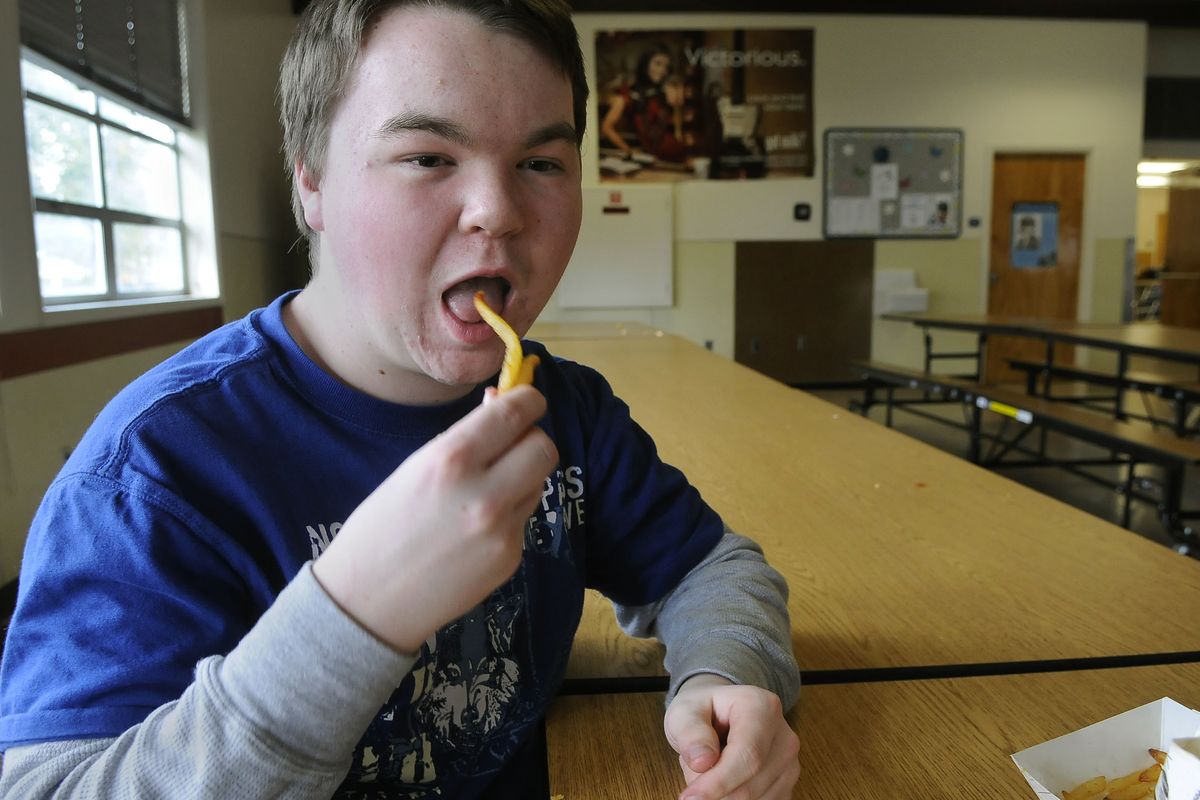Students, officials protest USDA tater-tossing plan

Potatoes are being blacklisted.
A proposal by federal nutrition officials to all but rid school meal programs of potatoes in favor of other vegetables and fruits has earned scorn from regional farmers, bewilderment from school officials and a big thumbs down from many students.
“If they don’t have fries or tater tots with lunch, a lot of kids won’t eat it,” said Scott Wolfe, an eighth-grade student at Sacajawea Middle School in Spokane.
Wednesday was the last day for public comment on the plan from the U.S. Department of Agriculture, which is attempting to make changes to fight the childhood obesity epidemic.
Doug Wardell, nutrition services director for Spokane Public Schools, said banning or restricting the most commonly served vegetable in school lunches and breakfast may backfire.
Potatoes are a good source of potassium and vitamin C and should not be labeled as junk food, he said.
“You’ve heard this before,” Wardell said: “It’s not the potatoes that are bad, it’s what we do to them.”
The potatoes served in public schools are oven-baked, not fried, he said. He acknowledged that they are processed with oils and salt for flavoring, but said casting fries and tater tots served at schools as the obesity culprit is missing the point.
“Kids are not getting fat off of school meals,” he said.
School lunches are a ripe target for parents and others who want more wholesome, nutritious food served. Lunch choices resemble fast-food: hamburgers with fries. Popcorn chicken with fries. Pizza. Nachos. Tater tots. Prepackaged peanut butter and jelly sandwiches with chips.
There are plenty of other choices, too, including salads, grilled chicken wraps and fruit, but students line up for burgers and fries.
Sacajawea lunch worker Pam Ward said about 70 pounds of french fries are served with the 325 lunches provided students each day.
The changes trickling down to the schools began with a rule that erased any potato products from the approved list of foods in the federal Women, Infants and Children (WIC) program. The changes followed the recommendations of the Institute of Medicine, an arm of the National Academy of Sciences. Potatoes are the only vegetable left off the approved list for WIC, which in 2009 served 9.3 million children and pregnant and breast-feeding women who were in danger of malnutrition.
The institute determined that many WIC participants already ate plenty of potatoes and wanted to encourage them to eat a wider variety of fruits and vegetables.
Chris Voigt, executive director of the Washington State Potato Commission, said it wasn’t long before the recommendations washed into the school lunch programs, which subsidize breakfast and lunch for about 32 million children every year in public and private schools.
The issue hits more than just nutrition, Voigt said. Washington’s potato crop is a $4-billion-a-year economic engine in the middle section of the state. About 87 percent of the potatoes grown in Washington are processed into french fries, tater tots, hash browns and other processed foods.
Upset by the changes, Voigt last year embarked on a 60-day potato-only diet that garnered national attention and highlighted the nutritional benefits of the potato as well as the drudgery of eating the tubers day after day.
The school lunch program cutbacks would be the latest salvo against potatoes. Low-carb diets and obesity have made potatoes and especially french fries a symbol of the problem.
Sacajawea eighth-grader Laura Reese, holding a mound of nachos with a side of fries and apple juice, will be disappointed if fries are pulled from the offerings.
“I don’t get to have this at home,” she said.
Her friend Sydney Cathcart said restricting fries and trying to get students to eat other vegetables and fruit might be a good idea.
“Maybe people won’t be as fat and stuff,” she said before eating her lunch of Sun Chips, chocolate chip cookies and chewy fruit snacks.
Under the proposed changes, potatoes would be banned from school breakfasts. At lunch, schools would be able to offer one cup of starchy vegetables per week to students. These starchy vegetables could include potatoes, lima beans, corn and green peas.
“The justification is that by taking potatoes off the plate it will force school districts to put other choices on the plate,” Voigt said. “It will be expensive, too. Potatoes are a cost-effective way of delivering nutrients and here we have the USDA saying, ‘Let’s have kids eat spinach.’ It won’t happen.”
Said Wardell, “There’s so much that would end up in the garbage.”
He likened the proposal to a cudgel when perhaps more subtle encouragements would be effective.
“Why get rid of the vegetable that the students are eating?” he asked. “You can’t force somebody to eat something they don’t want to.”